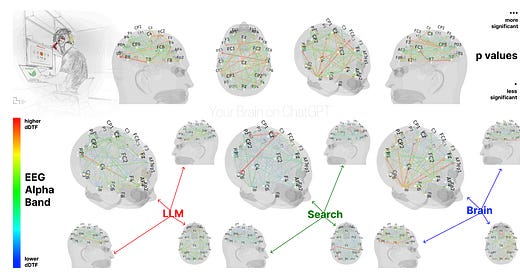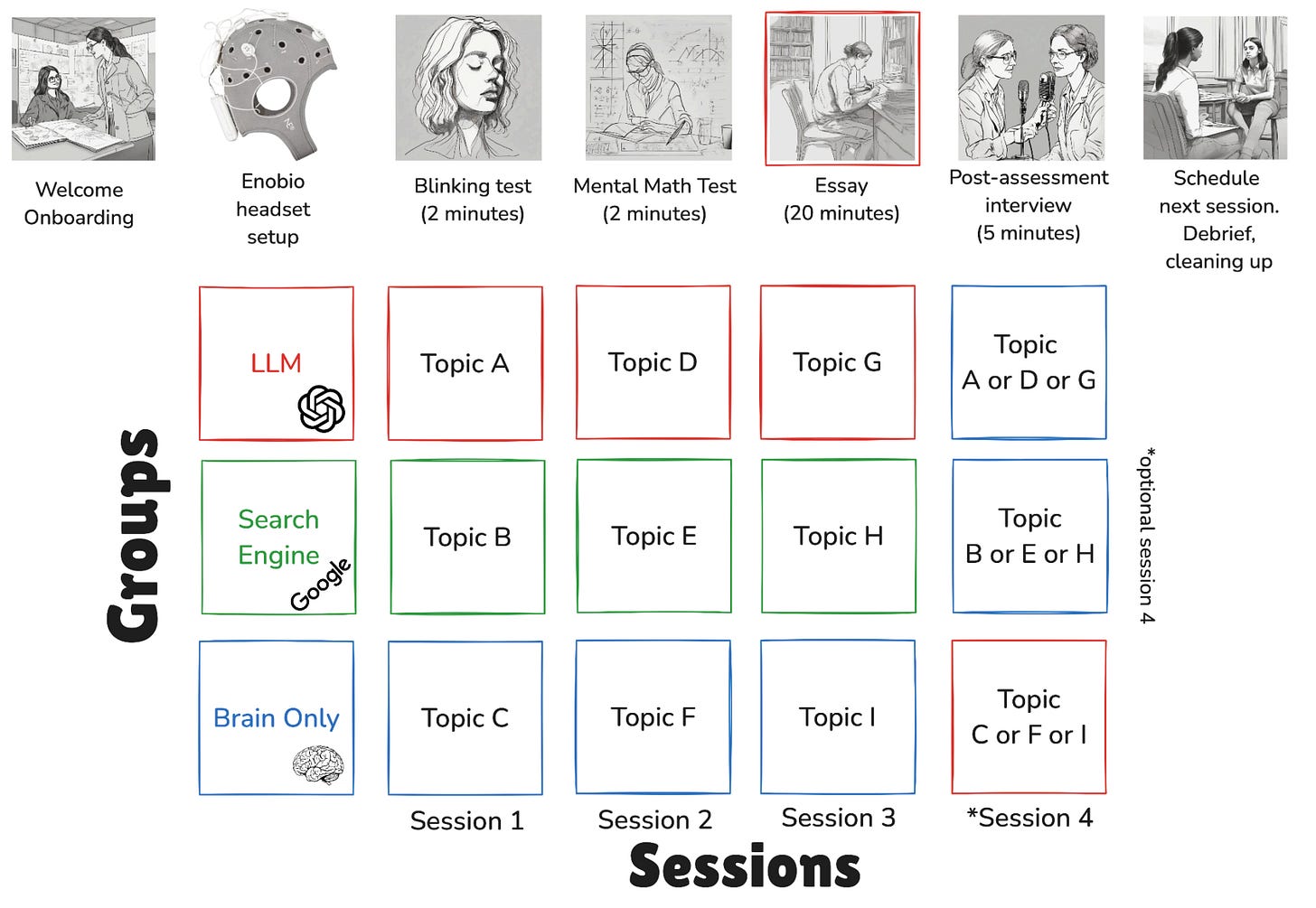ChatGPT Might Be Dulling Your Brain: Here's What To Do About It
A new MIT study reveals that relying on AI impairs memory and weakens brain activation, but also offers clues for how to protect your brain.
Have you ever reached for ChatGPT to quickly draft an essay, email, or even a crucial report? If so, you're certainly not alone. Millions use large-language-model tools like ChatGPT daily to streamline their writing and enhance productivity. But a new groudbreaking study from MIT suggests this convenience might come with a hidden cost; one that affects your memory, brain connectivity, and even your sense of ownership over your ideas.
Why This Matters
As artificial intelligence becomes integral in education and the workplace, understanding its effects on our brains is critical. While AI-generated text might save us time and come up with new ideas, we need to consider if it impacts our ability to remember, think critically, and produce truly original ideas. The question isn't just whether ChatGPT can do the work, but what happens to our brain when we let AI take the wheel.
Key Study
A new neuroscience pre-print study from MIT rigorously explored this exact question. Conducted by a team of cognitive neuroscientists, the researchers set out to measure what happens inside the brain (and to our memories) when we rely on ChatGPT for writing.
The experiment involved 54 university students divided evenly into three groups:
Brain-only group: Wrote essays completely unaided.
Search-engine group: Wrote essays using only traditional Google searches.
ChatGPT group: Relied entirely on GPT-4o, a powerful AI writing assistant.
Over four months, participants wrote multiple short, SAT-style essays. Their brain activity was monitored via electroencephalography (EEG), and afterward, they were asked to recall their writing and discuss how connected they felt to their own work.
Deep Dive
How It Was Tested
Participants produced three 20-minute essays, each spaced out across several months. The researchers monitored their brain activity during the task using EEG, focusing on neural connectivity; how different brain areas communicated with each other. They also evaluated how well participants remembered their own writing and how much ownership they felt toward their work.
In a fascinating final session, researchers swapped tools for two groups to test whether initial reliance on AI affected later unaided performance, a concept they called "cognitive debt."
Key Results
Memory and Recall:
After writing the essay, participants were asked a pretty simple question: “Can you quote any sentence from your essay without looking at it? If yes, please, provide the quote.”
Students writing without assistance remembered their essays well. Only 2 out of 18 made errors quoting their own text in both the Search‑Engine and Brain‑Only groups.
Those using ChatGPT were dramatically impaired; all 18 students failed to recall an exact quote.
Sense of Ownership:
Students who wrote unaided felt ownership over their work.
In contrast, the ChatGPT group frequently reported fragmented or no sense of personal ownership.
Brain Connectivity:
Writing independently activated widespread networks in the brain, particularly between areas responsible for language, memory, and complex thought.
The ChatGPT users showed significantly weaker brain connectivity, suggesting lower cognitive engagement.
Cognitive Debt (Tool Switching):
Students initially writing unaided who later used ChatGPT maintained high neural activity and strong memory recall, suggesting resilience.
Students who started with ChatGPT and then wrote unaided suffered impaired reduced brain activity and memory, demonstrating significant cognitive debt. 7 of 9 participants who began the study with ChatGPT (78 %) failed to recall even a single sentence from their own essays, versus 1 of 9 in the brain-only group.
Mechanisms: What's Actually Happening in the Brain?
When writing without help, your brain activates complex circuits critical for memory and deep thinking. Using ChatGPT bypasses much of this mental effort, narrowing brain engagement to simple, procedural tasks (e.g., copy-pasting). Over time, your brain essentially becomes reliant on AI, losing its capacity to independently activate deeper thinking processes.
How to Apply It
If you're concerned about these findings but still want to leverage the convenience of ChatGPT, here’s what to do:
Practice Writing Independently First: Build the initial framework and ideas independently to strengthen your neural circuits and memory formation.
Use AI for Refinement: Introduce ChatGPT only after you've generated a draft yourself, using it as an editor or idea generator rather than a crutch from the outset.
Regularly Test Recall: Periodically challenge yourself to recall key points or quotes from your work to maintain memory strength. If you are having trouble remembering what you wrote, it may be a sign you are suffering from the cognitive debt of relying on AI.
Key Takeaways
Writing independently significantly enhances brain engagement and memory.
Relying solely on ChatGPT severely impairs the ability to recall content and reduces key brain region activation. Using Google as a tool does not have the same impact.
Depending on AI assistance creates cognitive debt, weakening future independent cognitive performance and memory of your work.
Use AI as a support tool rather than a complete substitute to preserve cognitive skills.
Closing Thoughts
As AI increasingly shapes our professional and academic landscapes, it's crucial to consciously manage our relationship with these powerful tools. By understanding and mitigating the cognitive costs highlighted by this study, we can use ChatGPT to augment and not undermine our intellectual health.
Could integrating these findings change the way you use ChatGPT in your daily life? The choice, ultimately, is yours.








My research professor just told us the same thing, he worries about the impact AI will have on dementia as generations become more reliant on it, interesting read!
Isn't this study like looking at people who commute by walking, biking, or car, and finding that those who use a car have lower muscle activation and heart rate? It seems completely obvious to me.